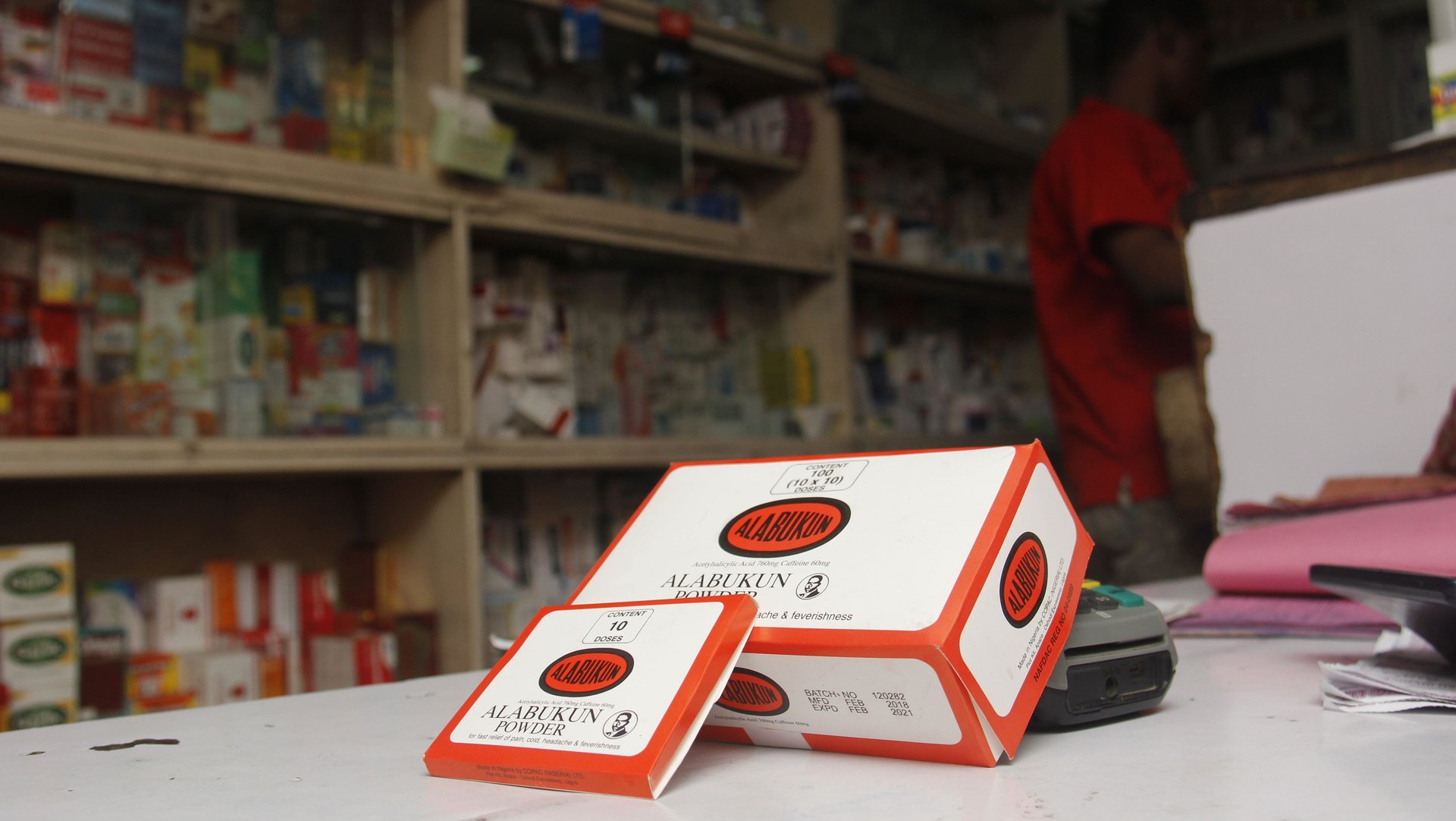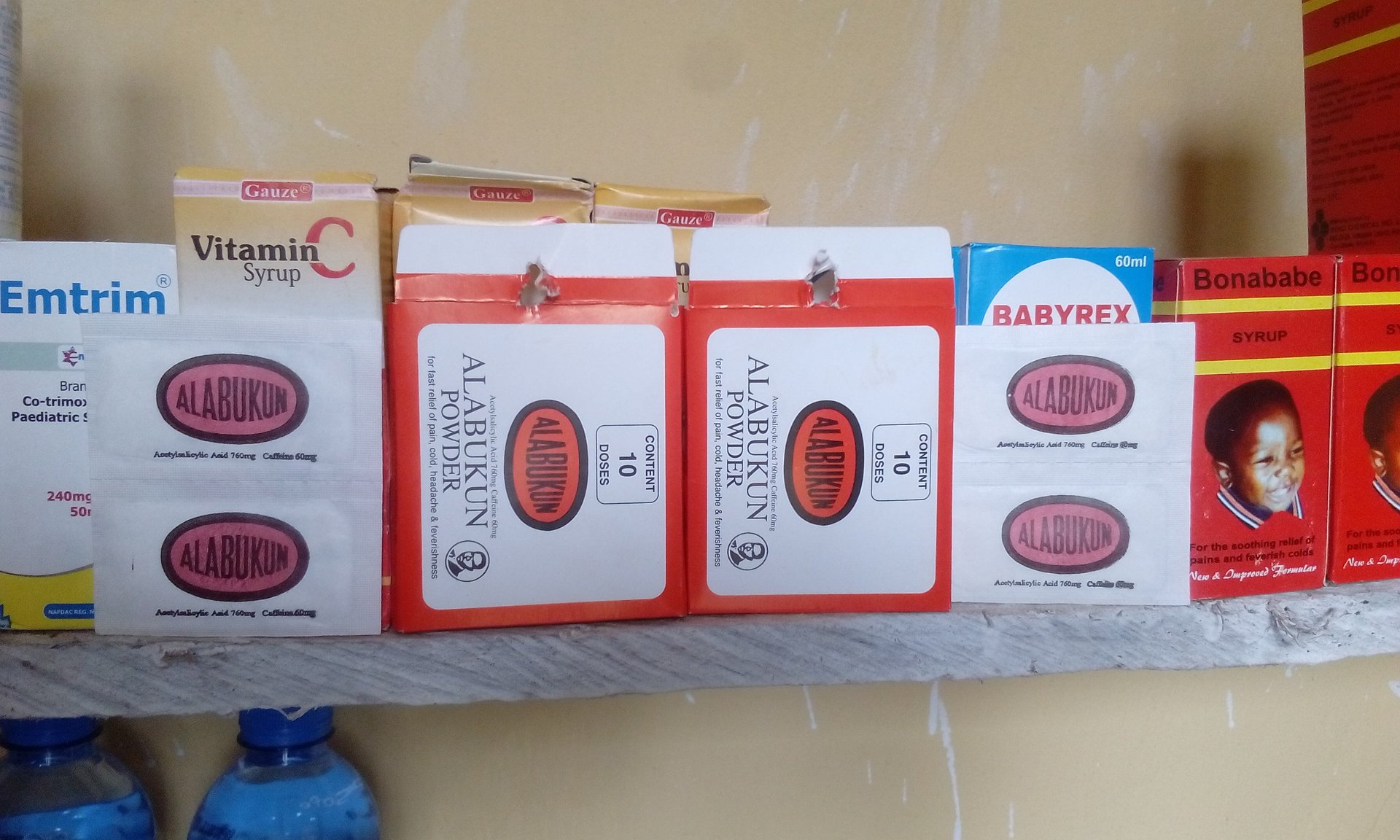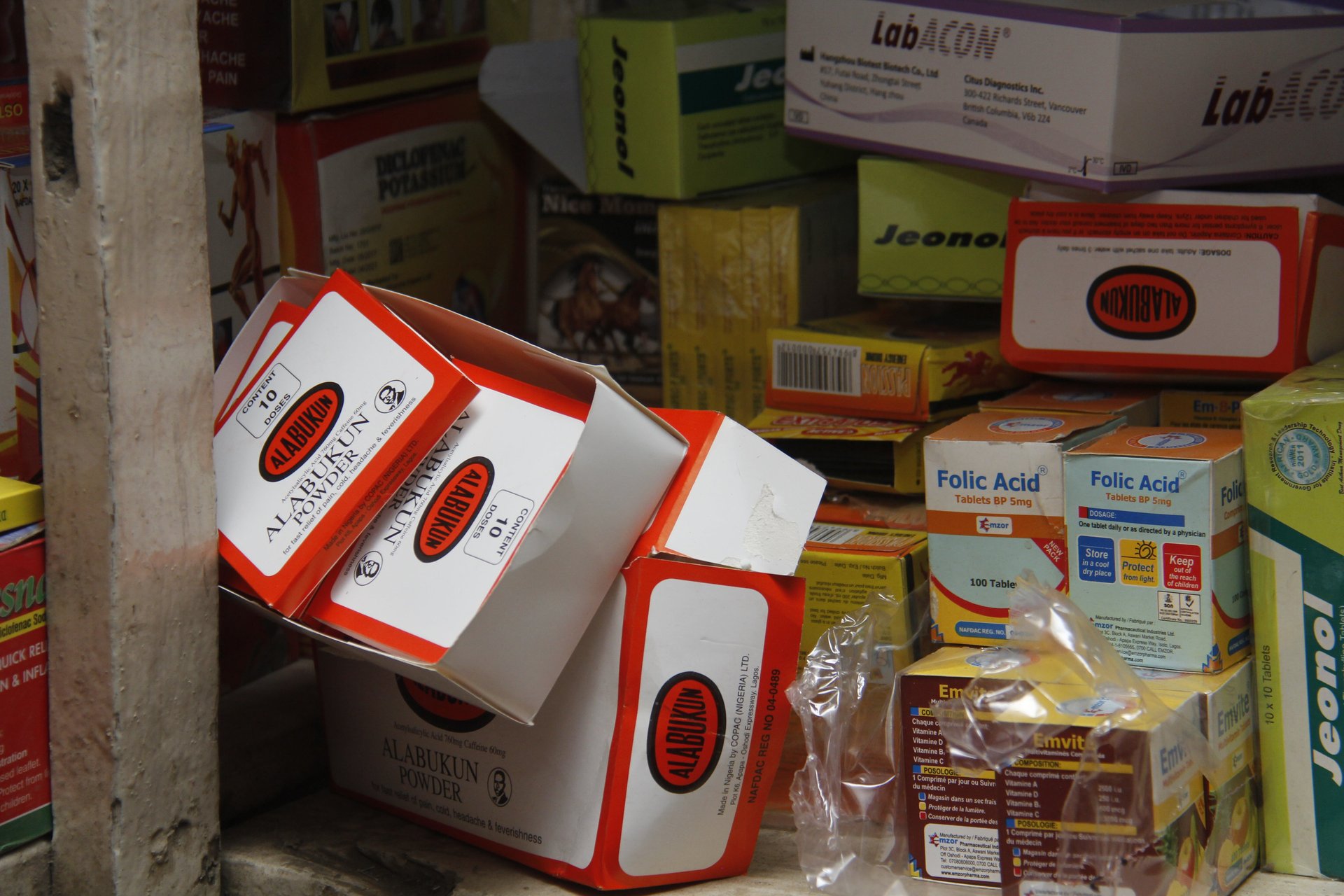The untold 100-year old story of Nigeria’s first homegrown modern drug
If you ever stopped at a street-side pharmacy, almost anywhere in Nigeria, and looked down the shelves you’ll find, probably between the nondescript packets of tablets for the common cold and malaria fever, the distinctive white and red sachets for a local medicine called Alabukun Powder.


If you ever stopped at a street-side pharmacy, almost anywhere in Nigeria, and looked down the shelves you’ll find, probably between the nondescript packets of tablets for the common cold and malaria fever, the distinctive white and red sachets for a local medicine called Alabukun Powder.
Nigerians who use the drug are convinced it cures almost every ailment from minor headaches, fevers and pains to battling chronic rheumatism and arthritis. Medically speaking, Alabukun powder is an analgesic but it’s used in local traditional herbal medicine concoctions as commonly as it is used in modern medicine in Nigeria.
The Alabukun brand is one of the longest-running, indigenous pharmaceutical brands in Africa, gaining widespread use over the last 100 years and become part of Nigerian fabric, without significant marketing or advertising budgets in recent decades. It can also be found in stalls and pharmacies in neighboring West African countries and even in local stores of migrant-heavy neighborhoods in the United Kingdom. It’s a remarkable achievement because there are few indigenous Nigerian consumer brands of any sort that had made it this far and wide—and lasted 100 years.

Alabukun was founded by a Nigerian pharmacy apprentice and entrepreneur, Jacob Sogboyega Odulate in 1918, a period when Aspirin-caffeine (headache) powder brands were just starting to spring up in the United States. The year was also at the peak of colonial control in Nigeria (today’s country was just created in 1914). There was no modern pharmaceutical industry and only a few western drugs were imported and distributed in the country by European companies.
Though there was already Aspirin, a drug discovered in 1897, in the market, Nigerians barely had access to western drugs and most people only knew of traditional local medication based on herbs. Odulate, born in 1884 in Lagos, was armed with a basic knowledge of European pharmaceutical products and medical care acquired locally as a pharmacy apprentice in Abeokuta, introduced his own brand of Aspirin-caffeine powder to the locals and went ahead to make sure it was always available and affordable to them.
Odulate who was nicknamed by locals as Alabukun (Blessed Jacob), started producing what would become Alabukun powder from local materials and imported patent drugs which he imported from the United Kingdom through a British company, called Ayrton Saunders & Co. based in Liverpool. Odulate also established a retail chain called “Alabukun Patent Medicine Supply Stores” and sold patent drugs. He also ran a clinic where he attended to minor injuries and wounds.
Today, a sachet of Alabukun powder contains 760 mg of acetylsalicylic acid (Aspirin) and 60 mg of caffeine. Its powder form means, when compared to tablets, it dissolves faster and therefore works faster. Most people mix it with water but its also mixed with everything from soda drinks to gin.

Since Aspirin is an analgesic used for deep pains, fever, inflammation and blood clotting when combined with caffeine its potency is increased and it can be used for treating migraines. Aspirin—and therefore Alabukun powder—works by inhibiting the production of the body chemicals, prostaglandins which is responsible for inducing pain, fever and inflammation, and thromboxane which is responsible for blood clotting in the body.
Locals have long awarded many real and mythical qualities to the medicine from the simple, like curing terrible hangovers to the more unsettling like a medicinal recipe found online of Alabukun, 7UP and dry gin which the author claimed could help terminate pregnancies.
But the success and longevity of Alabukun powder is a really a result of the marketing and sales distribution ingenuity of Blessed Jacob. First, he ensured his product was easily accessible to the locals right from the start by placing his first drug stall close to a street market. He also localized his products by giving them his already popular Yoruba nickname, Alabukun, and added his picture on his products, taking advantage of his reputation as respected medicine man to gain the trust of customers.
Nigerians took to it quickly. They were already familiar with traditional drugs in powder form and even used the Alabukun powder alongside traditional herbal medicines. He marketed his brand far and wide using the “Alabukun Almanac” in which he identified numerous medications for diverse ailments.
It’s worth noting another of Alabukun’s marketing and distribution strengths has also been its appeal to low income Nigerians as it can often be sold quite cheaply by the sachet in local stores or even street hawkers. Typically, a single sachet sells for 80 naira (25 cents) and a pack usually holds 10 sachets. It’s a lesson global consumer product giants like Unilever and P&G learned in numerous African markets decades later. To reach low-income customers fast-moving consumer goods often have to be sold in much smaller, conveniently-priced packages than they would be in wealthier economies. Alabukun was effectively doing this right from the start in its home market.
The scale of these achievements hadn’t been duly recognized or documented until his daughter, Folake Solanke, herself a much-accomplished, veteran lawyer told part of his story in her autobiography, Reaching for the Stars (2007).The Nobel Laureate and author, Wole Soyinka remembers growing up around this enterprise, as a young boy. Soyinka wrote about Blessed Jacob, his medicine store and an Alabukun Almanac of 1938 in his memoir, Ake: The Years of Childhood.
At the time of Jacobs’s death in 1962, he had already firmly established the Alabukun brand in the south-western part of Nigeria and was a wealthy man with real estate around the region.
Sign up to the Quartz Africa Weekly Brief here for news and analysis on African business, tech and innovation in your inbox